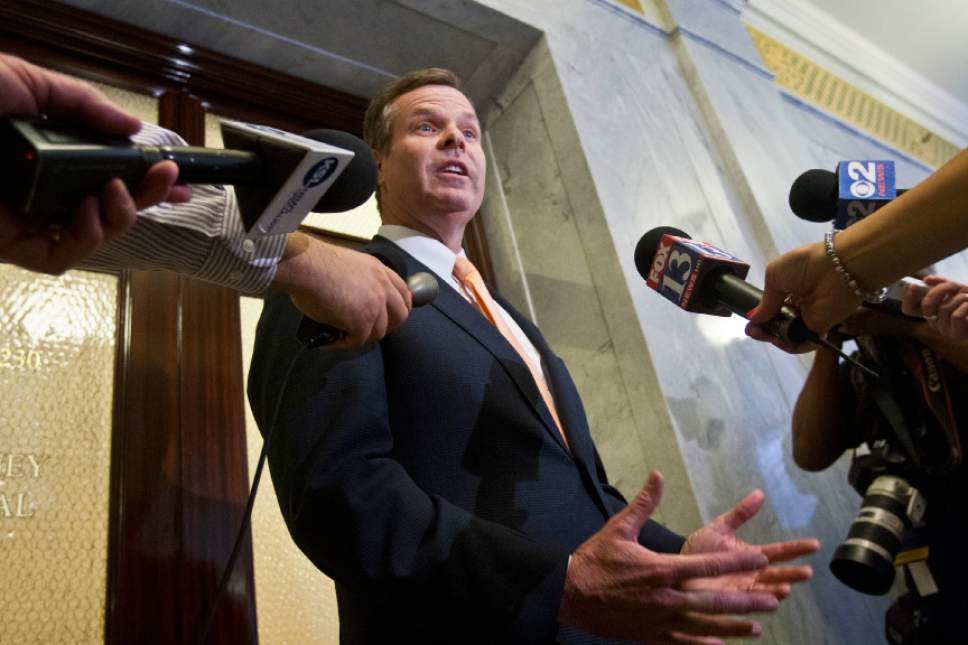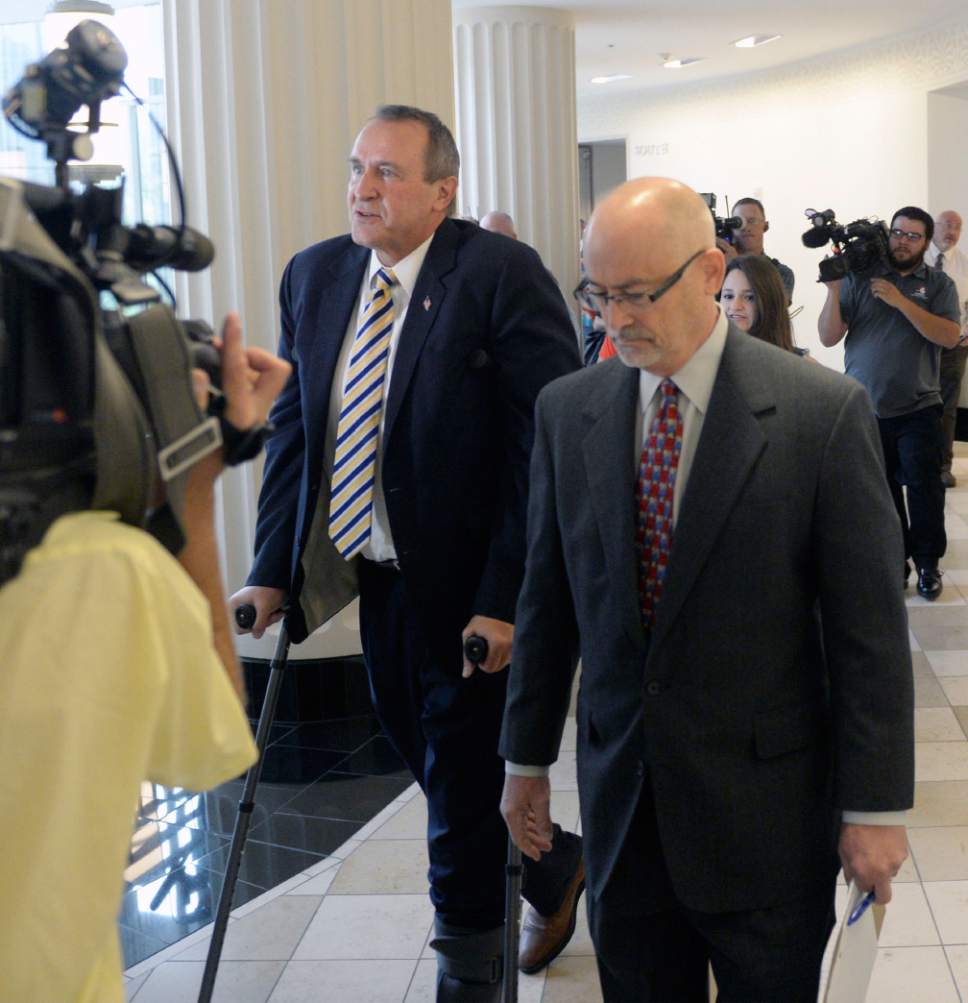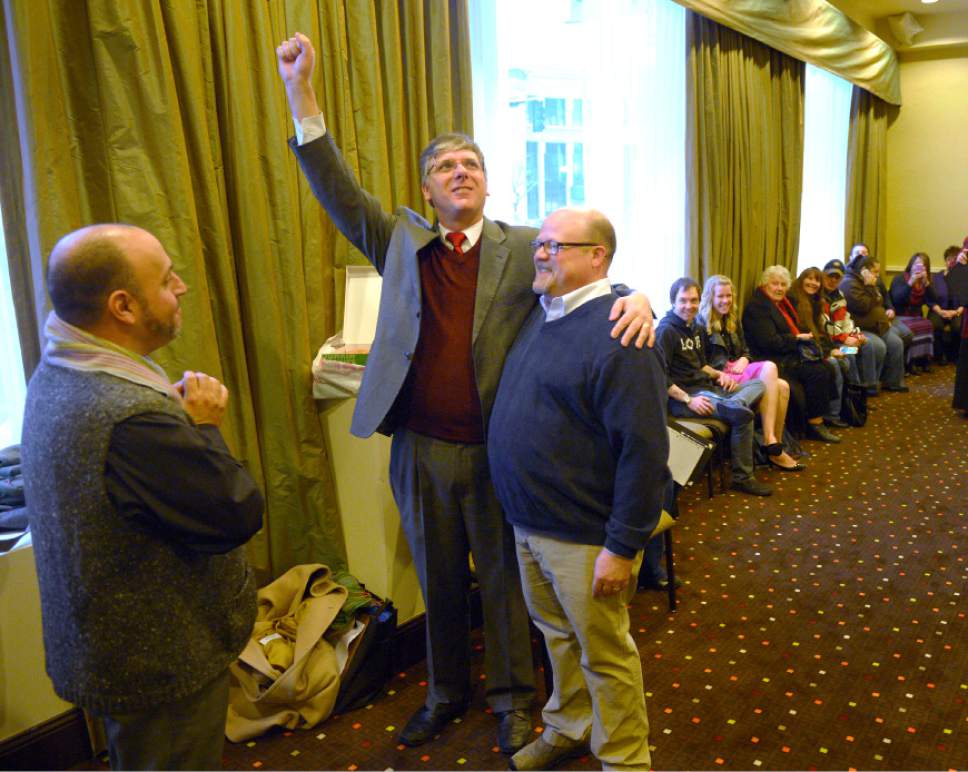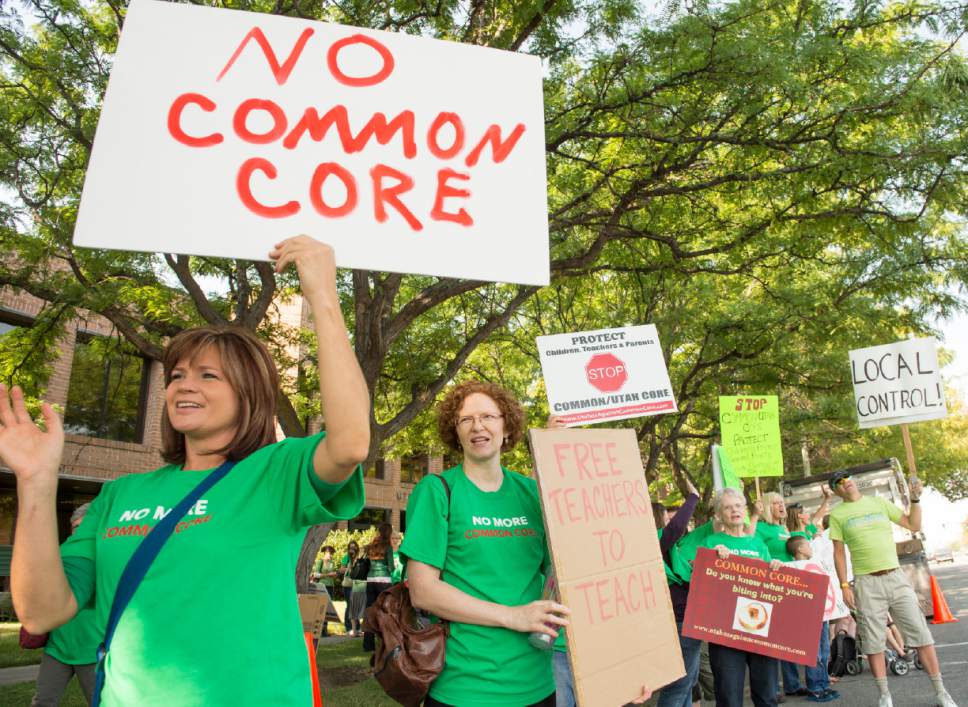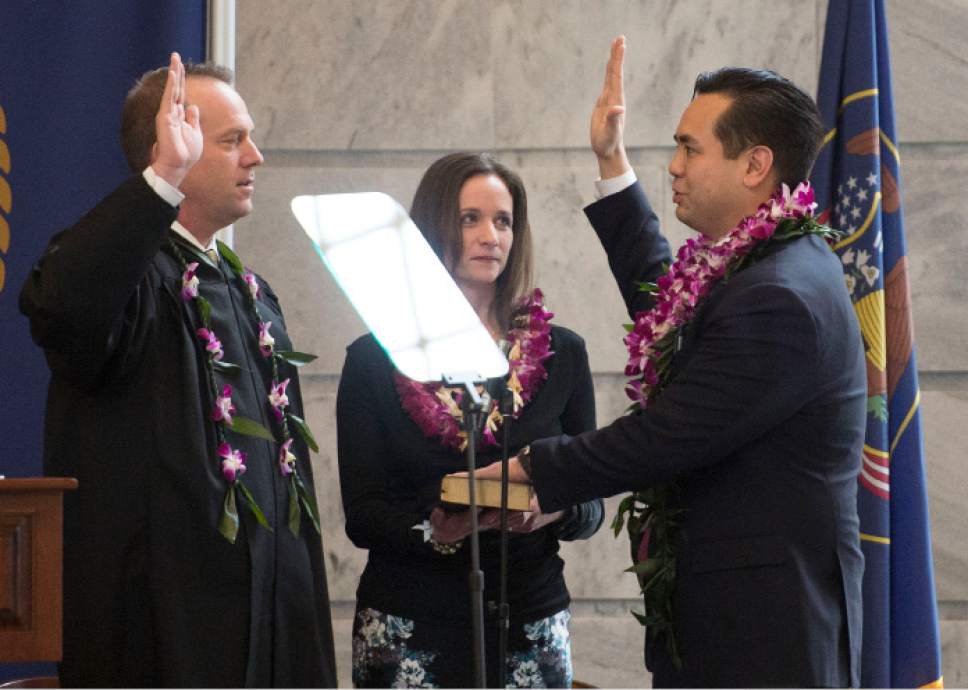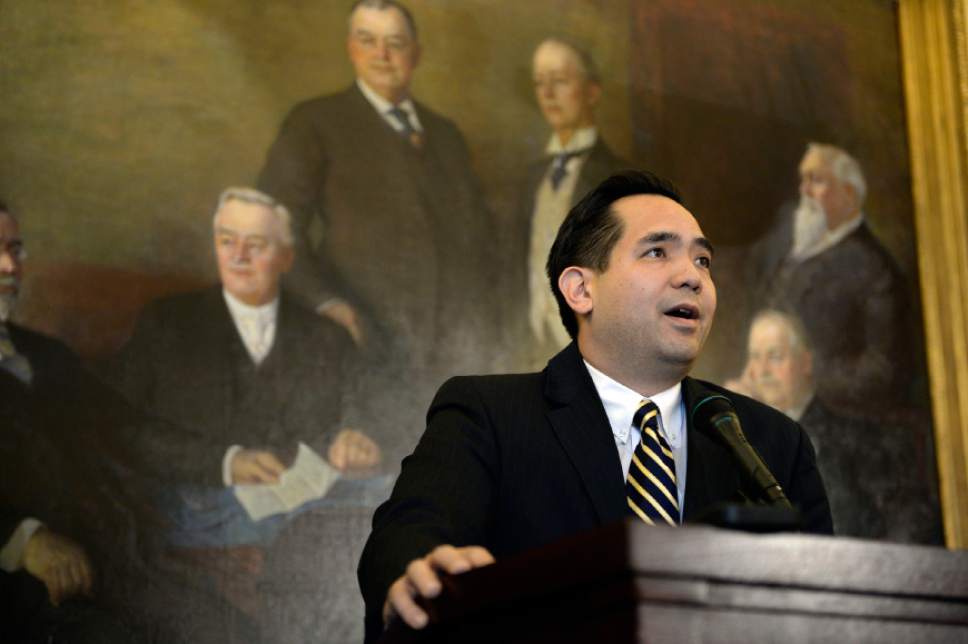This is an archived article that was published on sltrib.com in 2015, and information in the article may be outdated. It is provided only for personal research purposes and may not be reprinted.
In the aftermath of a pay-for-play scandal that has his two predecessors facing multiple criminal charges, newly minted Utah Attorney General Sean Reyes vowed to take rigorous steps to guarantee no appearance of impropriety on his watch.
"While there may have been a 'For Sale' sign before on the door of the attorney general's office … there's a new sign since I've been there and it's, 'Beware of the Dog,' " Reyes said during a campaign debate last fall, promising to be a "bulldog when it comes to protecting the integrity of my office."
But a review of Reyes' donations since he took office roughly 18 months ago shows that can be easier said than done, with sometimes hard-to-detect agendas giving rise to potential conflicts of interest — or at least the appearance of conflicts.
Take, for example, the $65,000 Reyes has received from Sean Fieler, a New Jersey hedge-fund manager who has spread millions around to candidates who oppose the Common Core education standards and same-sex marriage.
Both of those issues have landed squarely in Reyes' office, with his attorneys spearheading the defense of Utah's same-sex marriage ban, which was struck down by the courts, and conducting a legal analysis of the Common Core as taught in Utah schools. A lawsuit by anti-Common Core activists against the state school board is pending.
Or there is the nearly $31,000 Reyes received from Washakie Renewable Energy and an executive in the company, Sally Kingston. The company is owned and operated by members of the Kingston polygamist clan, which has wide-reaching business interests and which former Attorney General Mark Shurtleff called an "organized-crime family" in a 2011 Rolling Stone interview. Shurtleff currently faces nine felony charges, including bribery and accepting gifts.
Washakie was recently fined $3 million by federal regulators for collecting and selling renewable-fuel credits for fuels it did not produce.
The company has not been subject to action by the state. The attorney general's office, however, is currently in court seeking to defend Utah's constitutional ban on polygamous marriages that has been in effect since statehood.
—
'Business as usual' • Joshua Kanter, founder and board president of the Alliance for a Better Utah, a progressive good-government group, said those donations and others create an appearance of conflict or potential conflicts that are unnecessary, because Reyes, the GOP candidate in an overwhelmingly Republican state, didn't need to be so aggressive about fundraising to win his 2014 election.
Democrat Charles Stormont, an assistant attorney general, spent just $129,000 on his campaign to Reyes' $400,000, and went down to defeat by a 2-to-1 margin.
"Reyes, it seems to me, is in a particularly good position to say — and he did say — 'I'm going to clean up the office. I'm going to clean up the appearance.' But this is still the same old business as usual," Kanter said. "By no means am I suggesting that someone is going to go buy the attorney general's office for $5,000, but I think the responsibility lies with the attorney general to say either this is an actual conflict or could create an appearance of conflict."
Reyes declined to comment for this story.
But Alan Crooks, Reyes' campaign consultant, said the campaign is careful to screen every donor and noted there are whole industries — those that frequently have issues handled by the office — from whom Reyes has sworn off contributions altogether.
Gone are the hundreds of thousands of dollars that Reyes' predecessors — Shurtleff and his handpicked successor, John Swallow, who faces 13 felony counts — received from the payday-lending industry and business-coaching companies, allegedly in exchange for special treatment for those sectors.
"The attorney general's campaign team takes vetting all donations very seriously, regardless of the organization, individual or amount," Crooks said. "We research and review all incoming campaign revenue and will continue to do so."
Payday-lending interests used a series of nonprofits to funnel tens of thousands of dollars in dark money into ads attacking Reyes during his 2012 primary race against Swallow, who allegedly had promised to be a proponent of the lenders if elected. The source of the cash emerged in later investigations.
—
'No comparison' • "Despite the media's best effort to make a comparison between the administrations in front of the summer trials, it is obvious there is no comparison," Crooks said. "From day one, A.G. Reyes has led with the highest ethical standards in mind and will continue to do so as Utah's attorney general."
No trial dates have been set for Swallow or Shurtleff in their criminal cases. Swallow recently waived his preliminary hearing, which had been set to begin Monday. As of now, Shurtleff's hearing is set for June 17.
Crooks said the Reyes campaign returned one contribution uncovered in The Salt Lake Tribune's review of the attorney general's financial records: $2,500 from a Texas company called Elevate Credit Services, which appears to be affiliated with a payday lender.
"While Elevate is not a payday-lending company," Crooks said, "due to some confusion as to the services they provide, we will be returning the donation."
Reyes has amassed nearly $570,000 since taking office from nearly 250 supporters. Only a handful of those donations stand out. There is also no evidence of a quid pro quo or pay-to-play arrangement, like that alleged to have taken place under Swallow and Shurtleff.
But some contributions may raise red flags.
The Associated Press reported last month that Reyes had received $10,000 from 1-800 Contacts, an online contact-lens seller that pushed for a change to Utah law aimed at preventing contact-lens makers from setting prices for their products. The lens makers have now sued the state, arguing it is an unconstitutional restriction on commerce. Reyes' office is defending the law.
In March, Reyes received $4,000 from Dickstein Shapiro, a Washington, D.C., lobbying firm that was featured in a New York Times story focusing on how lobbying firms try to cultivate favor with state attorneys general. Dickstein had attended a gathering of attorneys general, trying to persuade them not to take action against one of its clients, 5-Hour Energy.
And Reyes took a $5,000 contribution from EnergySolutions, a frequent donor to numerous political candidates, but one that Kanter said is almost sure to end up in litigation with the state over storage of radioactive waste at its Utah facility.
There's also an interesting side note in Reyes' 2015 report: The campaign recently paid $1,200 in fines for late disclosure of contributions.
"You put this whole list together and how do you avoid the appearance that it's just business as usual," Kanter said. "I don't mean that as an accusation. That just doesn't seem to go very well to the commitment of cleaning up and restoring public trust in the office."
gehrke@sltrib.com Twitter: @RobertGehrke


